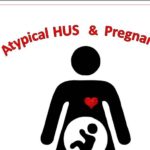Pregnancy is a common trigger of aHUS, this can impact on someone who is predisposed or related to someone predisposed to aHUS and had had aHUS and so it is something to think about when it comes to planning a family. Patients ask:
Do aHUS families have all the correct information to make informed family planning decisions?
Our expert told us :
“Obtaining all the correct information to make informed family planning decisions in the context of atypical hemolytic uremic syndrome (aHUS) can be a complex and individualized process. Families facing aHUS-related genetic considerations should work closely with healthcare professionals and genetic counselors to ensure they have the information they need. Here are some key factors:
- Genetic Testing: Genetic testing can help identify whether a family member carries a known genetic mutation associated with aHUS. This information is crucial for making informed family planning decisions.
- Risk Assessment: A genetic counselor can assess the risk of aHUS inheritance within the family and explain the likelihood of passing on the mutation to offspring.
- Family History: Understanding the family’s aHUS history is essential for risk assessment. This includes identifying affected family members and the genetic mutations involved.
- Reproductive Options: Families may explore reproductive options such as prenatal testing, pre-implantation genetic diagnosis (PGD), and adoption to reduce the risk of passing on aHUS to future generations.
- Psychosocial Support: The emotional and psychological impact of these decisions should not be underestimated. Families may benefit from counseling and support to navigate these complex choices.
- Ongoing Education: As scientific knowledge advances, families should stay informed about new developments related to aHUS genetics and family planning options.
It’s important to recognize that every family’s situation is unique, and the choices they make regarding family planning are highly personal. Ensuring access to accurate information and expert guidance is essential to help families make the decisions that align with their values and circumstances.”
Pregnancy like transplants are two situations where those susceptible to aHUS are knowingly putting themselves at risk. But pregnancy is also something which will put another potential living being at risk, by passing on a predisposing genetic variant.
Do all families have all the “correct information” to make informed decisions to make the decision to have a child or not? Probably not, like all genetic counselling in the aHUS space correct information is very patchy. Even if provided, it depends on the attitude to risk of individuals as a the case for withdrawal of treatment decisions.
in the past families were planned without knowledge of this risk. So much like the situation today for the parents who have no idea that aHUS is an issue until the disease strikes. They may or may not be rescued by a complement inhibitor and the genetics of their child if born are already determined.
Those informed have to make a decision knowing there is rescue pathway if needed and that the child is as likely to be not predisposed as being predisposed to aHUS. And being predisposed does not mean that the child will eventually become ill and live a long unaffected life.
As the review of the aHUS current Patients’ Research Agenda approaches its end there is an increasing sense of interconnections between each topic and the whole and demands an holistic approach.
Article No. 637
Previous articles on pregnancy.
aHUS & Pregnancy: Questions, Concerns, and Research
UPDATED April 2019: New Research View the video about aHUS & Pregnancy Dr Craig Gordon on the topic of Pregnancy & TMA: A challenging Dilemma, with preface by M…
aHUS Pregnancy – Answers prompt more questions!
Not surprisingly, as it is one of the hottest topics* in the aHUS community, there was a high number of questions about pregnancy in the Rare Disease Day video. About…
“Good News” from talking about aHUS and Pregnancy
Earlier this year ,when the alliance was responding to the Rare Disease Day video questions , aHUS Patient Megan contacted the alliance having read the blog about pregnancy and aHUS…
The right choice -Pregnancy and aHUS
It is reckoned that 1 in 25000 pregnancies are complicated by thrombotic microangiopathy (TMA). That is 40 in a million pregnancies. There are several causes of those TMAs. Pre- eclampsia…

aHUS in pregnancy and after
Article No 410 13 January 2021 The link between pregnancy and aHUS has been known for several decades. A chapter was devoted to it in Prof. Bernard Kaplan’s book about…

aHUS PREGNANCY COUNSELLING
Article No. 454 aHUS triggered by pregnancy is relatively common and accounts for 16% of female ( 18 to 45 years) aHUS incidents. 75% of the incidents occur post partum.…
Pregnancy and aHUS
The topic of pregnancy and aHUS is included in the Global aHUS Patients’ Research Agenda. It has featured in articles on this website. It has been a subject of interest…

Can aHUS relapse in pregnancy?
Pregnancy is an important topic and has featured a lot on this website. Quite a few questions about it in the RDD2022 video though. A lot ore is known about…

aHUS and the foetus
There are two involved in a pregnancy and birth the mother and the foetus /baby. The mother may or may not have had aHUS before or during birth. Usually it…

